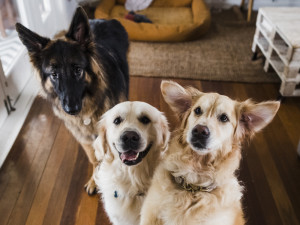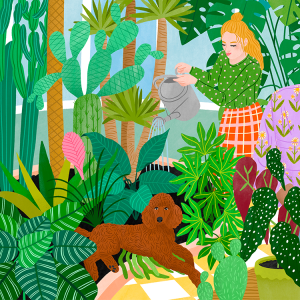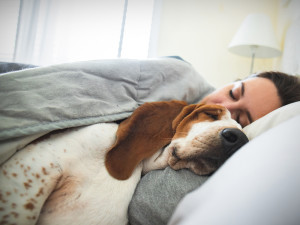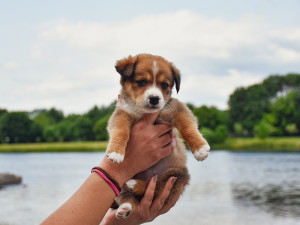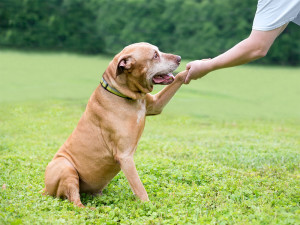Your Dog’s Personality Can Change Over Time
You won’t live with a rambunctious goofy teenager forever
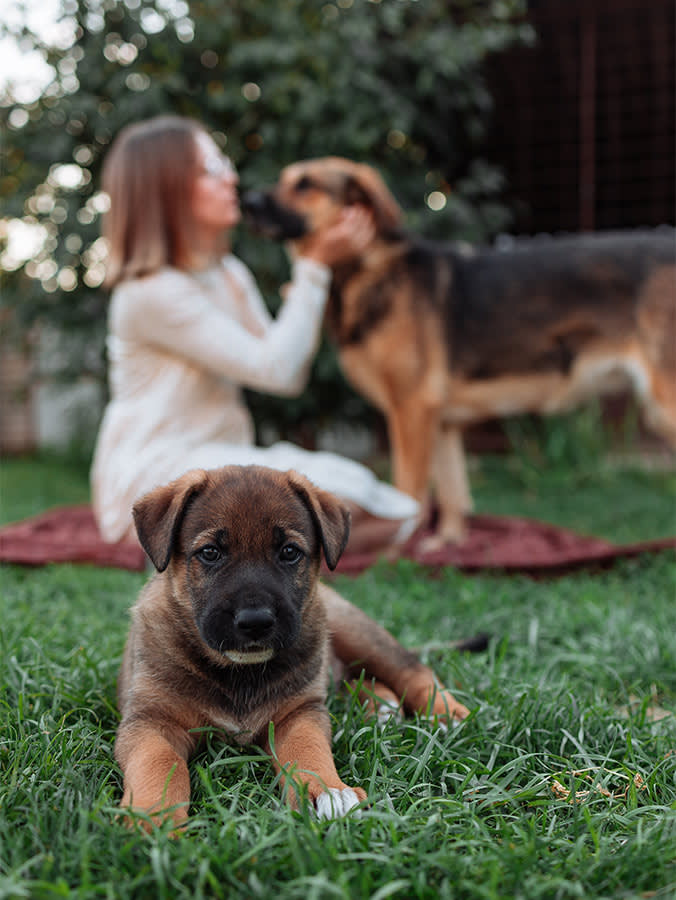
Share Article
When you spend extra time scratching your dog’s belly, or taking them out for long walks and games of fetch, or even when you feel constant frustration over their chewing habits, you are gradually shaping your pup’s personality. Dogs, like people, have moods and personality traits that shape how they react in certain situations. A dog’s personalityopens in a new tab plays a big part in their life: researchers found that a dog’s personality will influence how close they feel to their pet parents, their biting behaviouropens in a new tab and even chronic illness. At the same time, their personality is not a constant; it will change as they grow. Here’s what you might expect from your pup’s personality changes.
How much does a puppy’s personality change?
Researchers from Michigan State University (MSU) foundopens in a new tab that puppy personalities change quite a bit as they leave adolescenceopens in a new tab. “When humans go through big changes in life, their personality traits can change. We found that this also happens with dogs – and to a surprisingly large degree,” says lead author William Chopik. “We expected the dogs’ personalities to be fairly stable because they don’t have the wild lifestyle changes humans do, but they actually change a lot. We uncovered similarities to their owners, the optimal time for training and even a time in their lives that they can get more aggressiveopens in a new tab towards other animals.”

littleKin™ is Kinship’s home just for puppy and kitten parents. Bop over to check out expert advice, new pet tools, and special deals—all curated for your newest family member.
opens in a new tabResearchers surveyed pet parents of more than 1,600 dogs, including 50 different breeds. Dogs ranged from just a few weeks old to 15 years and were split closely between male and female. The extensive survey asked pet parents to evaluate their dog’s personalities and answer questions about the dog’s behavioural history. Pet parents were also asked to answer a survey about their own personalities.
“We found correlations in three main areas: age and personality, in human-to-dog personality similarities and in the influence a dog’s personality has on the quality of its relationship with its owner,” says Chopik. “Older dogsopens in a new tab are much harder to train; we found that the ‘sweet spot’ for teaching a dog obedience is around the age of six, when they outgrow their excitable puppy stage but before they’re too set in their ways.”
How do pet parents influence their dog’s personality?
One trait that rarely changes with age in dogs is fearopens in a new tab and anxiety. Homing in on the saying, ‘dogs resemble their owners’, researchers showed dogs and pet parents share specific personality traits. Extroverted humans rated their dogs as more excitable and active, while pet parents high in negative emotions rated their dogs as more fearful, active and less responsive to training. Pet parents who rated themselves as agreeable rated their dogs as less fearful and less aggressive towards people and animals.
The pet parents who felt happiest about their relationships with their dogs reported active and excitable dogs, as well as dogs who were most responsive to training. According to Chopik, aggression and anxiety didn’t matter as much in having a happy relationship.
“There are a lot of things we can do with dogs – like obedience classes and training – that we can’t do with people,” he says. “Exposure to obedience classes was associated with more positive personality traits across the dog’s lifespan. This gives us exciting opportunities to examine why personality changes in all sorts of animals.”
These findings prove how much power humans have over influencing their dog�’s personalities. Chopik explains that many of the reasons a dog’s personality changes result from the ’nature versus nurtureopens in a new tab’ theory associated with humans’ personalities. “Say you adopt a dog from a rescue home. Some traits are likely to be tied to biology and resistant to change, but you then put them in a new environment where they’re loved, walked and entertained often. The dog then might become a little more relaxed and sociable,” says Chopik. “Now that we know dogs’ personalities can change, next we want to make a strong connection to understand why dogs act – and change – the way they do.”
Caroline Brooks
Caroline Brooks was the communication manager for Michigan State University.
Related articles
![Bodil Jane illustration, someone waters a garden with a brown dog in it]() opens in a new tab
opens in a new tabNature vs Nurture: Does Your Parenting Style Influence Your Pet’s Behaviour?
Your personality may actually have something to do with your pet’s personality
![Greyhound dog lying on top of couch looking out of a window]() opens in a new tab
opens in a new tab6 Calming Products That Help My Dog’s Anxiety
Compression vests, interactive toys and pheromone sprays will be game-changers for nervous pups
![Woman and dog sleeping together in bed]() opens in a new tab
opens in a new tabWhere Should Your Dog Sleep At Night-Time?
It’s a personal preference, but here are the pros and cons
![Two hands holding a very young tan and white puppy up in front of a lake landscape]()
How to Socialise a Puppy
Everything you need to know to get your new addition off to a good start
![A senior Retriever/Terrier mixed breed dog shaking hands with its owner.]() opens in a new tab
opens in a new tabHow to Teach an Old Dog New Tricks
Your senior dog might move slower these days, but that doesn’t mean they can’t learn new things
